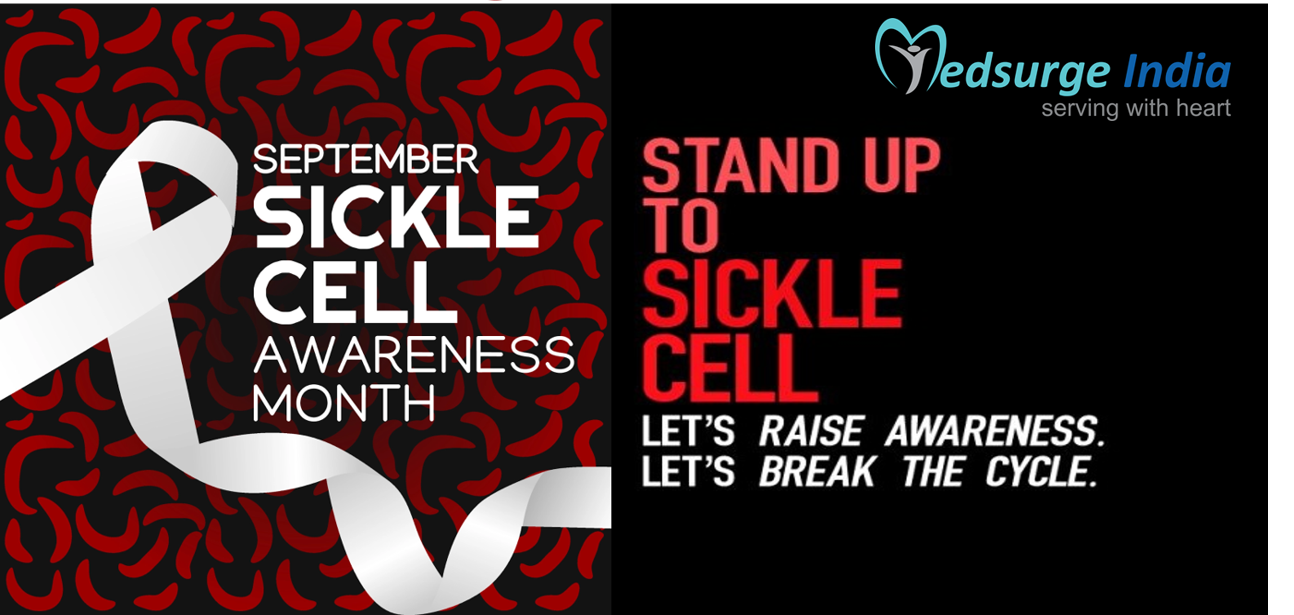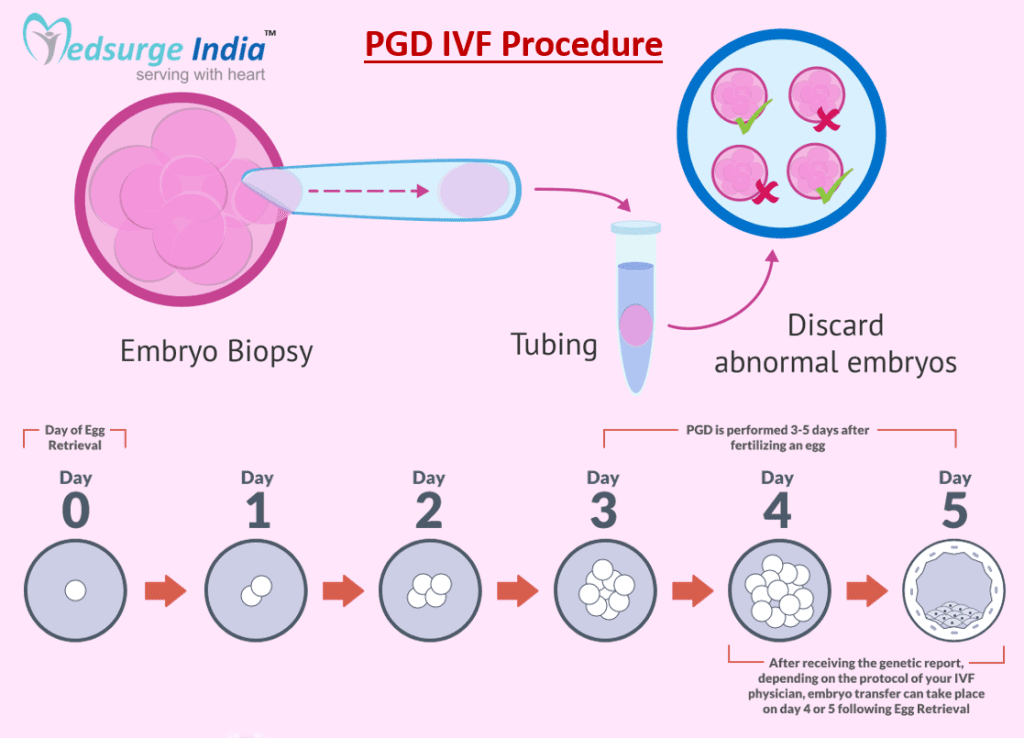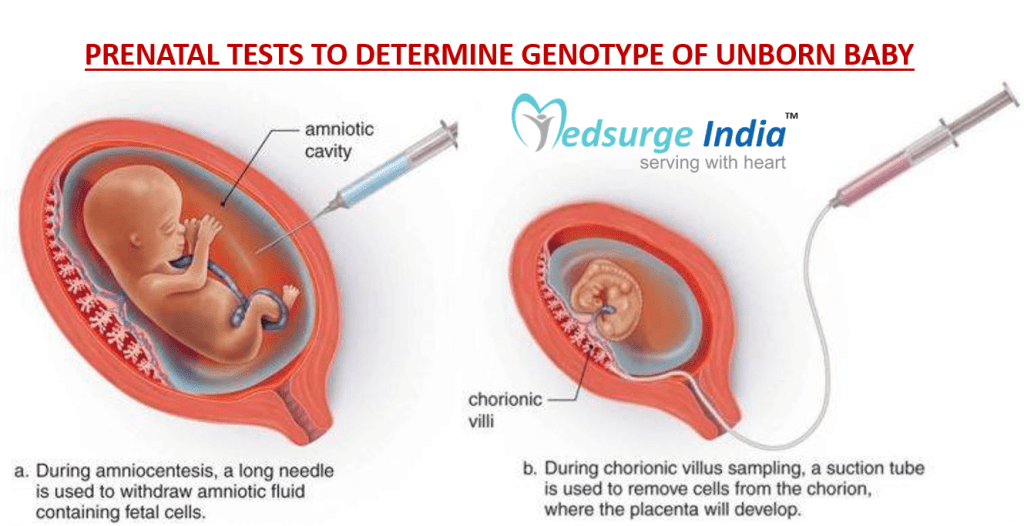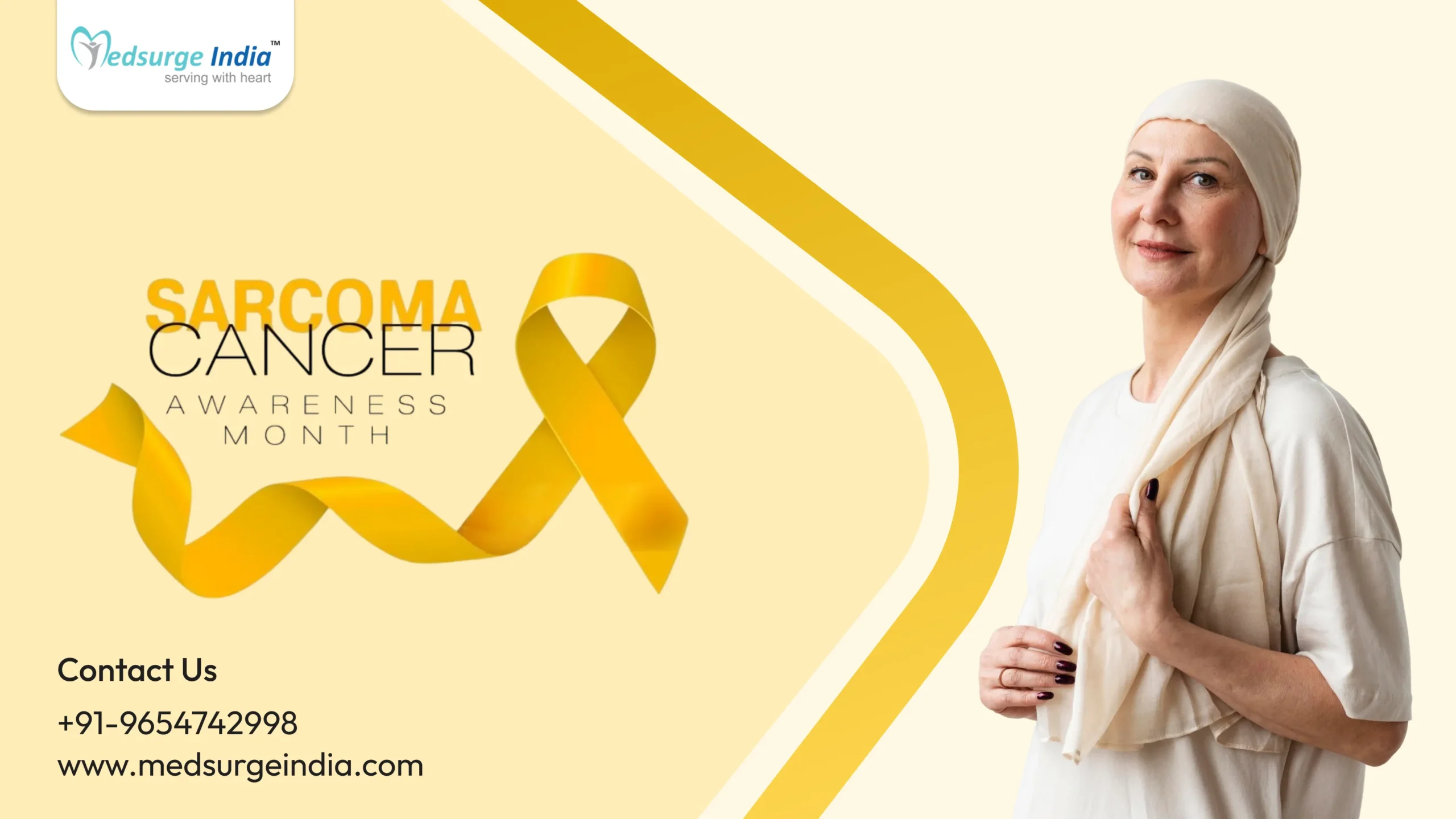
SEPTEMBER – The Sickle Cell Awareness Month
September is the time of the year in which the world celebrates Sickle Cell Awareness Month every year. People with sickle cell trait (genotype AS), sickle cell disease (genotype SS), their families, friends, caretakers, healthcare providers and different individuals come together to bring awareness of the disease, its prevention, treatment options and to break the stigma and myths that surround it.
Millions of people worldwide are unaware that they have the sickle cell trait (AS) as it usually does not cause any illness, but it is important to test whether you or your loved ones have this sickle cell trait, as there are 25% chances of producing Sickle Cell Anemia (SS) child if both parents are AS. So it is very crucial to know your genotype before family planning, so accordingly you can take the necessary Sickle Cell disease prevention measures and plan ahead accordingly.
The month also helps to focus attention on the need for new treatments, better care practices, and research of sickle cell disease, nationally and internationally. To show love and support for sickle cell patients let us encourage people worldwide to come together, donate stem cells as they can be the cure and educate people worldwide about eradicating sickle cell disease in order to break the Sickle cycle which can be done by taking prevention measures and sickle cell anemia treatments.
What is Sickle Cell Anemia?
Sickle Cell Anemia or sickle cell disease is a genetic blood disorder and especially passes along from one generation to the next. Normally, the shape of the RBCs has a disc-like shape which gives them the flexibility to travel through even the smallest blood vessels in the body. But for a person with sickle cell disease the RBCs have an abnormal shape resembling a crescent moon or like a sickle and they are rigid as well as sticky which is prone to getting trapped in small vessels which causes tissue damage and severe pain in the body.
Types of (SCA) Sickle Cell Anemia
There are several types of sickle cell anemia and here are some important ones;
1. Hemoglobin SS disease (HbSS) – Hemoglobin SS disease is a more common type of sickle cell disease. This occurs when a person inherits sickle cell genes (i.e. the hemoglobin S gene) from each of the parents. It is known as one of the most severe forms of SCD, it is said that individuals experience the worst symptoms at a higher rate.
2. Hemoglobin SC disease (HbSC) – It is known that Hemoglobin SC is the second most common type of SCD. This occurs when you inherit the Hb C gene from one of your parents and the Hb S from the other. They have similar symptoms as individuals with HbSS patients and are less severe than HbSS individuals.
3. Hemoglobin SB+ (beta) thalassemia – In Hemoglobin SB+ (beta) thalassemia a person inherits the sickle cell gene from one of the parents and another gene for beta-thalassemia from the other parents. The symptoms are not severe.
4. Hemoglobin SD, SE, and SO – These are usually not severe and are mostly rarer than the other types.
5. Sickle Cell Trait – In this people inherit one sickle cell gene and will not have sickle cell disease but can pass the gene to their children.
PREVENT Sickle Cell Disease, Break the Sickle Cycle!
PGD IVF: If Sickle Cell Gene runs in your family there is a way to avoid passing it to your baby and break the sickle cycle and have a normal healthy baby. A highly advanced scientific procedure called preimplantation genetic diagnosis (PGD) is performed during in vitro fertilization (IVF) to thoroughly examine embryos with the goal of selecting sickle-free embryos for transfer or implantation.
So now couples who carry sickle cell genes don’t have to worry at all about passing their gene to the baby which can lead to sickle cell disease, they just have to opt for the PGD IVF procedure in India.
PGD involves doing a test on the embryo from in vitro fertilization before transferring it to the uterus. The test is done to check for genetic abnormality and to be sure if the embryo is chromosomally normal. This screening is a laboratory procedure done to prevent the risk of inherited disorders like Sickle Cell Disease and many more.
To know more about the PGD IVF procedure click here.

Prenatal Tests: Once conceived, prenatal testing can be used to determine whether a baby will have SCD, SCT, or neither of the two during pregnancy. If a couple with Sickle genotypes wants to produce children they should go for Prenatal Tests during pregnancy.
Now it’s possible to test for the genes a baby has inherited from their parents before giving birth. To determine whether the unborn child will have the disease or carry the trait there are two major ways mentioned below:
- Chorionic Villus sampling (CVS): Doctor takes a small sample of the placenta for DNA testing from 11 weeks of pregnancy.
- Amniocentesis: A sample of the amniotic fluid surrounding your baby is tested, between weeks 16-20 of pregnancy.

In countries like Nigeria, Uganda, Kenya and other African & Asian countries where sickle cell disease is so prevalent, we should strive to spread awareness and understanding for this severe genetic condition so that it can be prevented through PGD IVF and prenatal tests successfully.
Sickle Cell Anemia can be FULLY CURED!
The options for treatments are available depending on the person’s conditions and specific needs. Treatments are usually aimed at avoiding pain episodes, relieving symptoms and preventing complications. It may include medications like Hydroxyurea (Droxia, hydrea, siklos), Voxelotor (Oxbryta), Crizanlizumab (Adakveo), L-glutamine oral powder (Endari), pain-relieving medications, etc and blood transfusions but these are only temporary solutions for pain & crisis management.
Bone marrow transplant also known as stem cell transplantation is the ONLY CURE for sickle cell disease after which your loved one can live a sickle cell & crisis FREE life.
To know more in detail about the Bone Marrow Transplant procedure in India click here.
SUCCESS STORIES OF SICKLE CELL PATIENTS FROM ACROSS THE GLOBE WHO SUCCESSFULLY UNDERWENT BONE MARROW TRANSPLANT IN INDIA…
 Mother: Mrs. Sarah from Uganda “My son had no complications after Half Match BMT, he’s like any other normal child now”.
Mother: Mrs. Sarah from Uganda “My son had no complications after Half Match BMT, he’s like any other normal child now”.
 Mother: Mrs. Muye from Nigeria “ I am super happy that my son is fully cured from Sickle Cell & can live a normal life”.
Mother: Mrs. Muye from Nigeria “ I am super happy that my son is fully cured from Sickle Cell & can live a normal life”.
 Father: Mr. Willson from Kenya “ After his successful BMT, now he is sickle cell free for life with no more pain crisis”.
Father: Mr. Willson from Kenya “ After his successful BMT, now he is sickle cell free for life with no more pain crisis”.
 Mrs. Stellah from Tanzania, “ I am so thankful to Doctor for giving my daughter a new healthy life & Medsurge team for assisting us throughout our journey”
Mrs. Stellah from Tanzania, “ I am so thankful to Doctor for giving my daughter a new healthy life & Medsurge team for assisting us throughout our journey”






